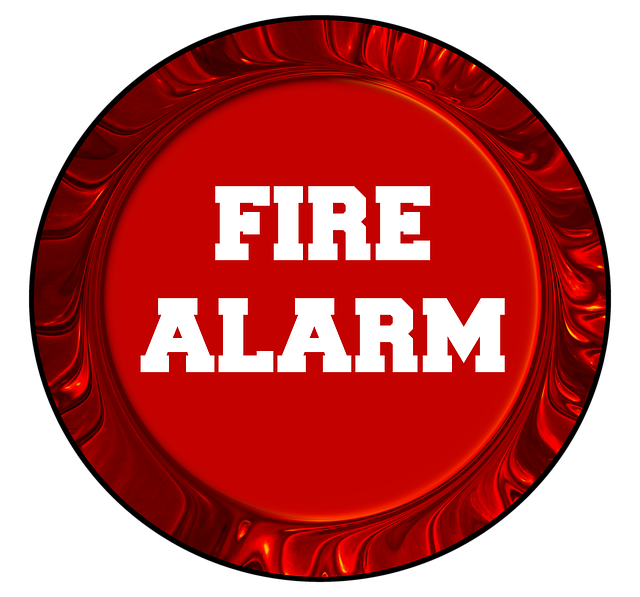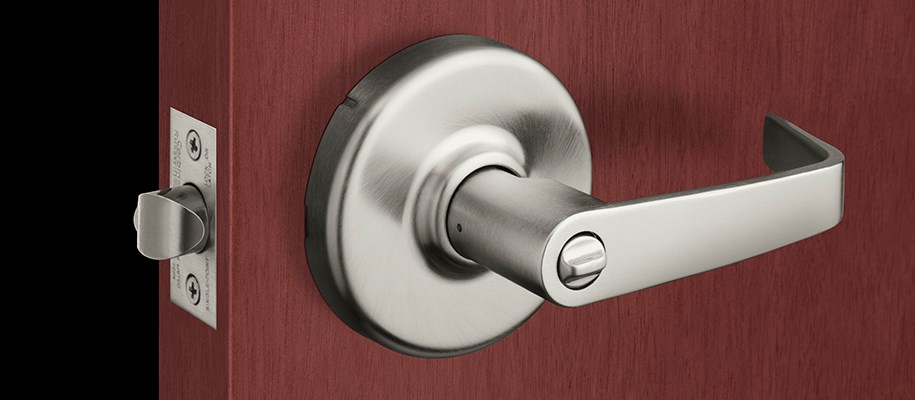Part of our job as security providers involves making sure that we follow local codes and legal guidelines when we install security equipment. However, our commercial customers still have some work to do after this happens in order to maintain their equipment. In fact, local codes dictate that several types of security equipment receive annual testing and maintenance. Furthermore, these codes also require that we capture the results of these tests for easy reference after the fact. Of course, the same legal guidelines also require that we make certain repairs when necessary as well. In this post, we explain some of the major security inspection requirements for commercial security equipment.
First, we’ll share a few “recommended” security measures that differ from those required by law. While following these tips will help you keep your security equipment up and running, failing to follow them will not run you into legal trouble. From there, we’ll look at a couple of required inspections that you must have completed every year. We’ll start with fire alarm system testing, arguably the most important of all of the commercial tests we perform. From there, we’ll look at another type of fire security inspection in the form of extinguisher maintenance. Finally, we’ll look at a category of security requirements that many people do not know much about in the form of ADA compliance. Now, let’s dive in with a look at our “non-required” security maintenance measures.
Recommended Security Measures and Inspections
We recommend taking a few steps towards maintaining your security equipment on a regular basis. For starters, we ask our customers to visually inspect security equipment on a regular basis, especially in warehouse areas or in other areas where dirt my collect. This equipment includes security and fire alarm equipment, as well as surveillance equipment and electronic door hardware. Taking this advice can keep your equipment running for years longer than it would if you let dirt and grime build up until it makes your security equipment fail.
Moreover, we also offer security equipment warranty plans to help ensure your equipment works when you need it most. All of these warranty plans include free replacement of security equipment when it fails. Furthermore, some of them even include annual testing and inspections of burglar-alarm related components! Signing up for one of these plans greatly enhances your security’s long-term effectiveness. Of course, doing so can also save you money in cases where you require us to replace any security-related items. While we strongly suggest that you take advantage of the advice here, nobody can require that you do so. In the next couple sections, we’ll review some legally-mandated security inspection requirements!

Fire alarm testing represents one of the strictest and most important types of annual security inspections we complete.
Fire System Testing
When it comes to fire alarm testing requirements, we must follow the guidelines contained in the National Fire Alarm and Signal Code created by the National Fire Protection Association (or NFPA). The NFPA refers to the National Fire Alarm and Signal Code as “NFPA 72.” This code mandates that commercial properties have a licensed fire alarm company — such as ourselves — test the onsite fire alarm equipment annually. Additionally, the code also creates guidelines for the reports that we must create upon completing the inspection.
In order for a fire alarm to pass a test, each component of the alarm’s system must work properly. This includes verifying the performance of any smoke and heat detectors on the system. Furthermore, we must also test additional devices such as manual pull stations and horn strobes. Finally, we also have to ensure that the alarm’s communication to our central station is also intact. This allows you to know that your alarm will call for help when needed.
Finally, we must take specific steps if a substantial portion of a fire alarm system fails. In these cases, customers have 8 hours to fix the issues at hand. After 8 hours, we must contact the customer’s local fire department and let them know about the issue. At that point, the fire department decides how to approach the situation. In extreme cases, they can even decide to have the building closed until the owners address the issue. Now, let’s take a look at some of the security inspection requirements related to fire extinguishers.
Extinguisher Maintenance
Like fire alarm systems, fire extinguishers must meet strict installation and maintenance guidelines. The NFPA also writes the code books governing these factors. In the case of extinguisher regulations, building owners and fire extinguisher professionals follow “NFPA 10.” This code book creates guidelines for both fire extinguisher installation and maintenance.
Commercial fire extinguishers require an annual inspection that we can perform onsite or at our own office if customers bring their extinguishers in. We clean the extinguishers and make sure that their pressure gauge indicates the proper pressure for successful discharge. As long as the extinguisher passes inspection, we then “tag” it. This tag shows the month and year that we last serviced the extinguisher. NFPA 10 contains several reasons that extinguishers may fail this inspection. Extensive damage to extinguishers, for example, will cause them to fail. Using the wrong size or type of extinguisher for a given application will also lead to a failed inspection during on-site inspections.
Additionally, we perform more in-depth maintenance on most extinguishers every 6 years. During this maintenance, we must empty and recharge the extinguishers. Finally, we complete performance testing on most extinguisher types after 12 years. Failing to complete either extinguisher or fire alarm system maintenance can lead to legal troubles. These can include both fines and insurance-related issues as well. Now, let’s turn our attention to a much different type of security inspection!
ADA-Related Security Concerns
While many of our commercial customers have heard about the Americans with Disabilities Act (or “ADA”) most of them have only a vague knowledge of the requirements it contains. This Act, passed in 1990, helped create many commercial lock requirements. Congress passed this law in order to ensure universal access to commercial buildings. The requirements put in place under this law include minimum guidelines for door openings to allow for wheelchair accessibility. They also include specifications on how quickly doors can close. Commercial levers must also meet ADA requirements for handicapped usage. Therefore, using doorknobs instead of levers in almost any commercial application fails to meet these guidelines. This surprises many business owners who install doorknobs, only to have to later swap them out for ADA-compliant levers.

ADA-Compliant levers, such as this one by lock manufacturer Corbin Russwin, are required on the vast majority of commercial doors.
While working with our commercial customers, we always make sure to use ADA-compliant lock hardware when installing both mechanical and electronic locks. Furthermore, we alert customers to any ADA violations when working with them on any project. Of course, we also suggest having us install ADA-compliant security equipment that we can provide. Keeping up with these important legal guidelines can keep your building safer and even save you quite a bit of money. After all, government fines for ADA compliance failure can exceed $100,000 based on the nature of the offense. Therefore, we’ve created many grateful customers by spotting and fixing these issues.
Meeting Security Inspection Requirements for Your Property
We hope that this post helps you understand commercial security inspection requirements. Additionally, we also encourage you to contact us with any questions this post may raise for you. We will happily answer any security-related inquiries you may have. Moreover, we also invite you to take advantage of our free site survey program. We offer complimentary security audits and equipment quotes to both new and existing customers alike. While on site, we can address any security concerns you may have. Furthermore, we can make security recommendations of our own based on observations made during our visit.
Perhaps you have the the proper security backbone in place in your business, but want to make sure you maintain and test your equipment properly. Or, maybe this post has made you realize that you need to beef up your security equipment and your testing practices. Either way, we are here to help! Together, we can create a complete commercial equipment and testing plan to keep your security equipment properly maintained for years to come.
